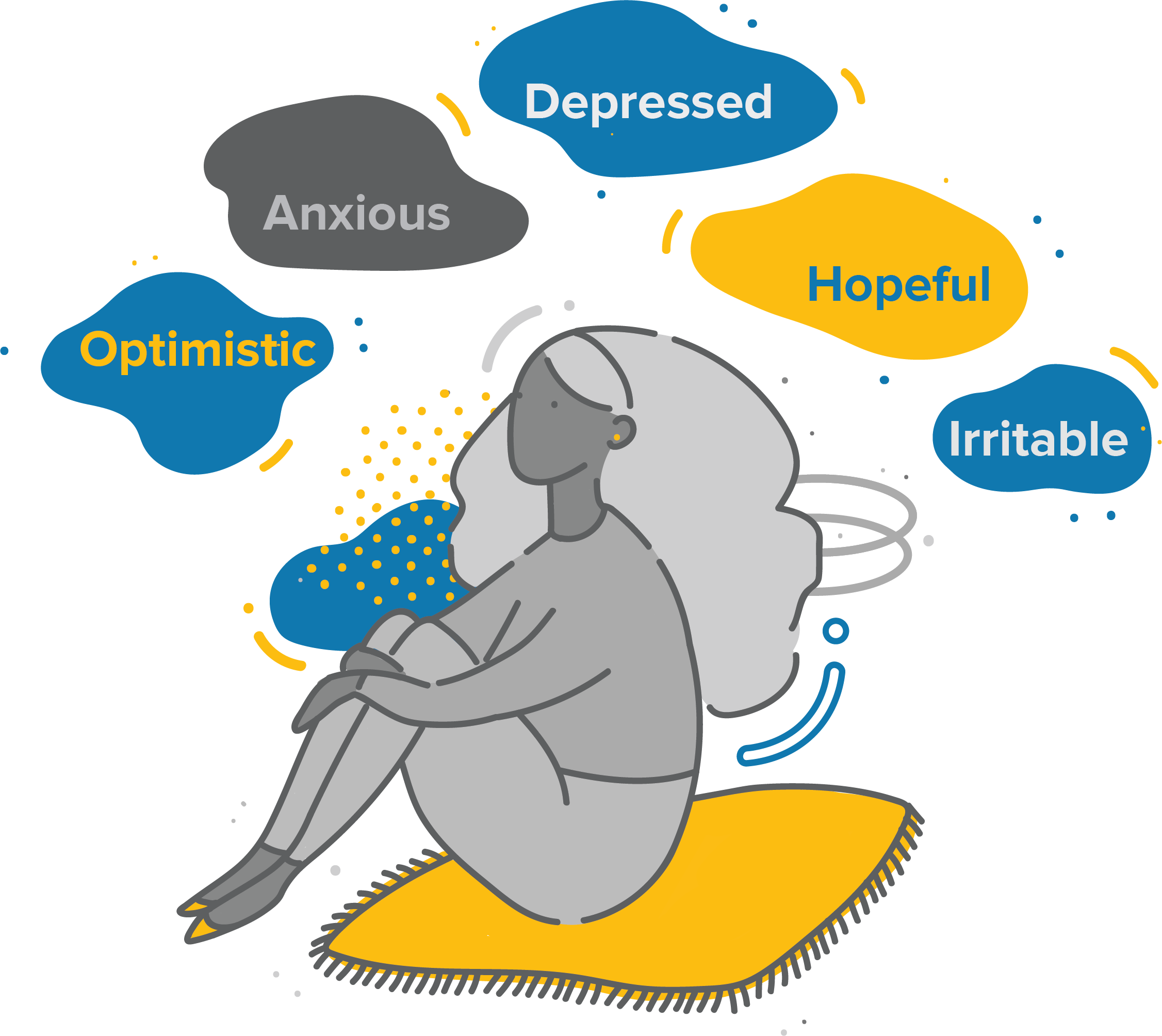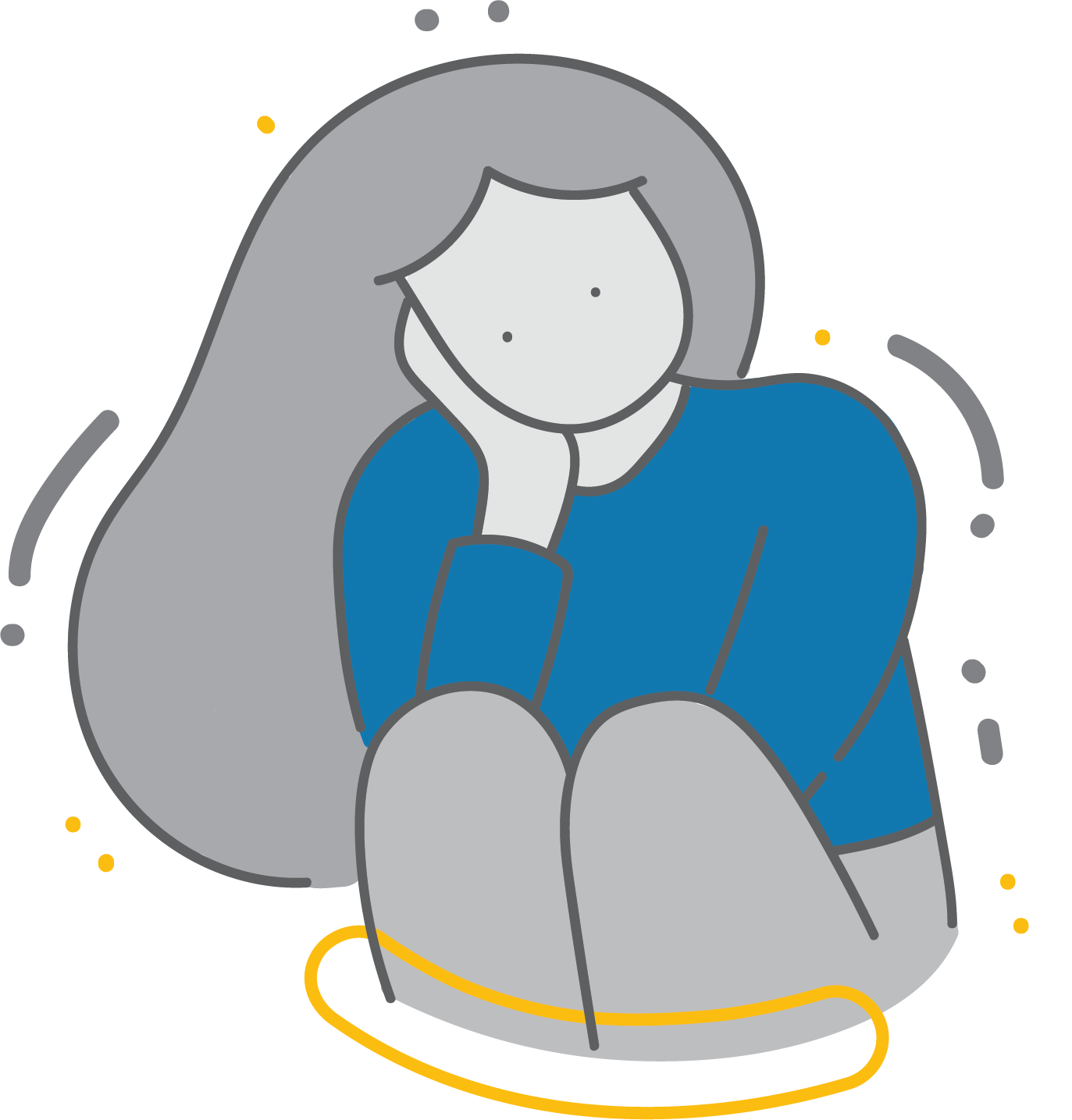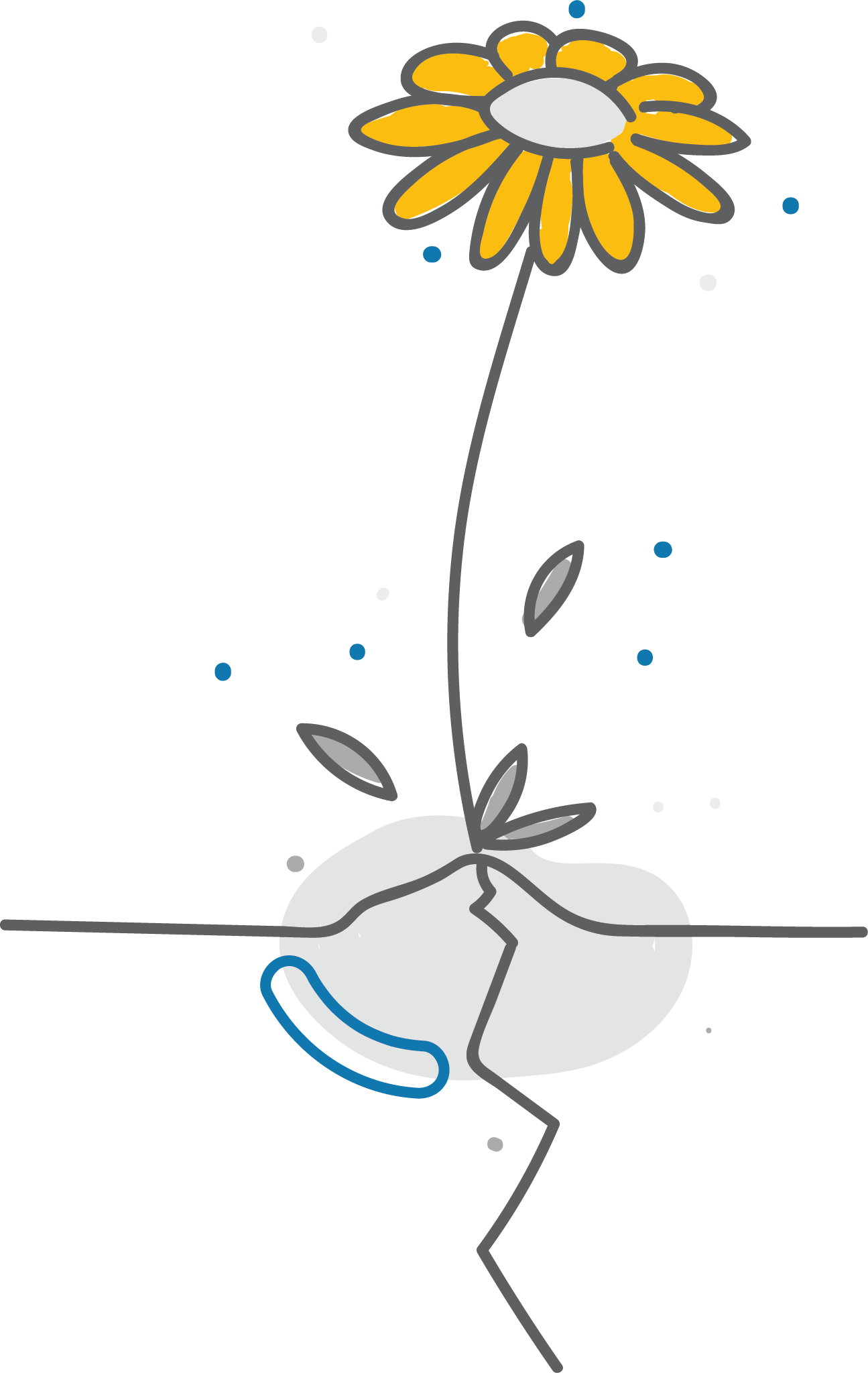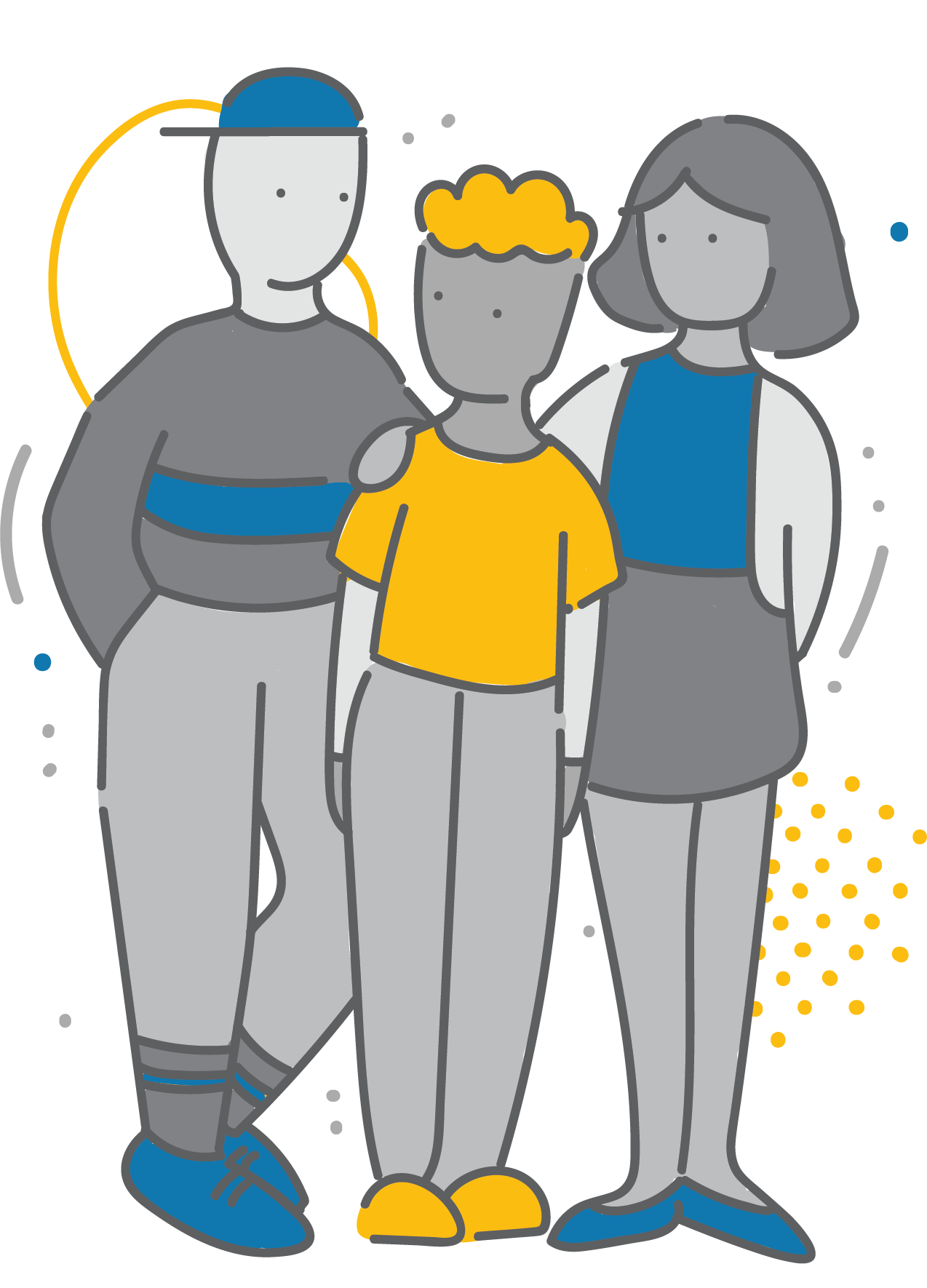Symptom Areas
Depression
Updated Jul 31, 2019
Swipe right to go to the next slide
Mood changes are common after concussion, including depressed mood, low interest, emotional ups and downs, anxiety, and irritability. In this section we are going to focus on depressed mood and related symptoms.
Concussion can cause mood changes directly, especially early on. However, depression and other mood changes can also be caused, worsened, or maintained by the life disruption and stress that sometimes follows concussion.

Most people experience some mood changes occasionally. However, if your mood changes persist and negatively impact your daily life, you might have depression or another mental health condition .
The Living Concussion Guidelines highlights changes in mood as a symptom that should be identified and treated early. Depression can mimic or worsen concussion symptoms, so it’s important to address it.

Depression and other mood disorders look different in different people. Usually, the person will have some combination of symptoms lasting at least two weeks, including the following:
Notice how much overlap there is between depression symptoms and concussion symptoms? If you are having some of these symptoms more days than not, talk to your family doctor.
The good news is that there are many effective treatments for depression. You and your family doctor can decide on one that’s right for you. Treatments could include self-management strategies, group therapy, individual therapy, or medications. One evidence-based approach to treating depression recommended by the Ontario Neurotrauma Foundation is Cognitive Behavioural Therapy (CBT), which was introduced in the article Challenging Your Thoughts.

If you are feeling overwhelmed or hopeless, supports are available. You are not alone, and you don’t need to feel ashamed. Tell someone you trust if you are feeling suicidal. Your health providers can also help you connect with supports. Crisis Services Canada [webpage] offers free support by phone or text.
If you are concerned for your own safety, call 9-1-1.

If you are having symptoms of depression and you want to take action, here are some ideas:
There are some excellent free online resources. Check one out!

Click the button above to toggle between light mode and dark mode. This toggle can also be found in the menu.
Hold
and tap
to zoom in.
Hold
and tap
to zoom out.
Hold
and tap
to zoom in.
Hold
and tap
to zoom out.
On most mobile devices, you can spread to zoom.
Increase your text size in your device settings.
Remember to take regular breaks while exploring MyGuide: Concussion.
Vancouver Coastal Health’s MyGuide Concussion Team would love to hear your feedback! It matters to us and helps to improve the experience for future users. Your responses will be kept anonymous and your privacy is a top priority. To complete a 15-20 minute online survey or request a telephone survey, please click the link below.